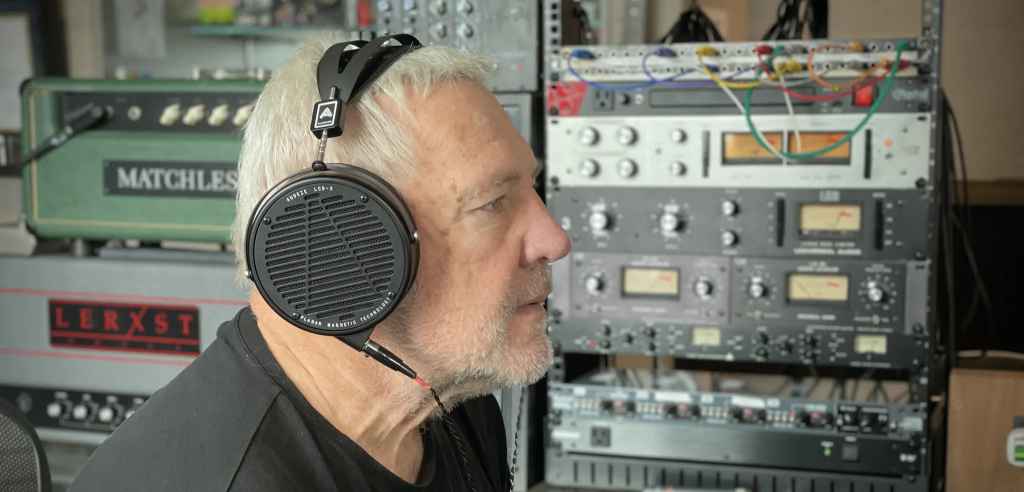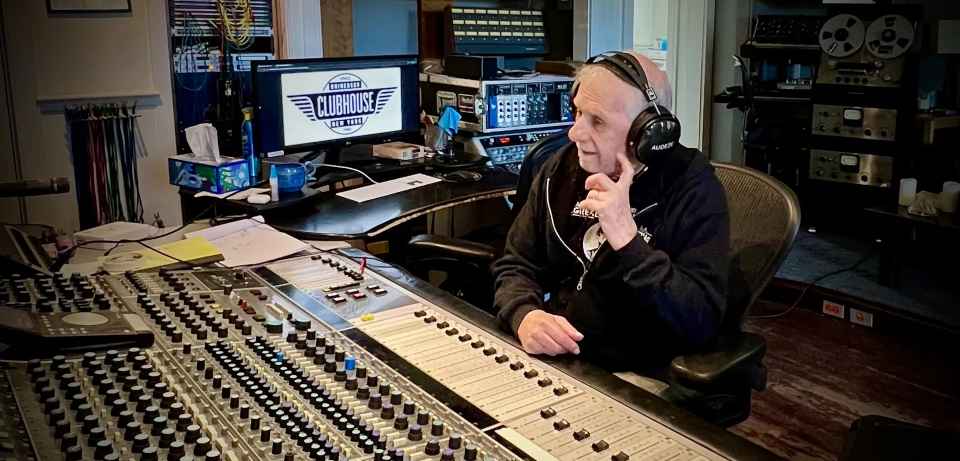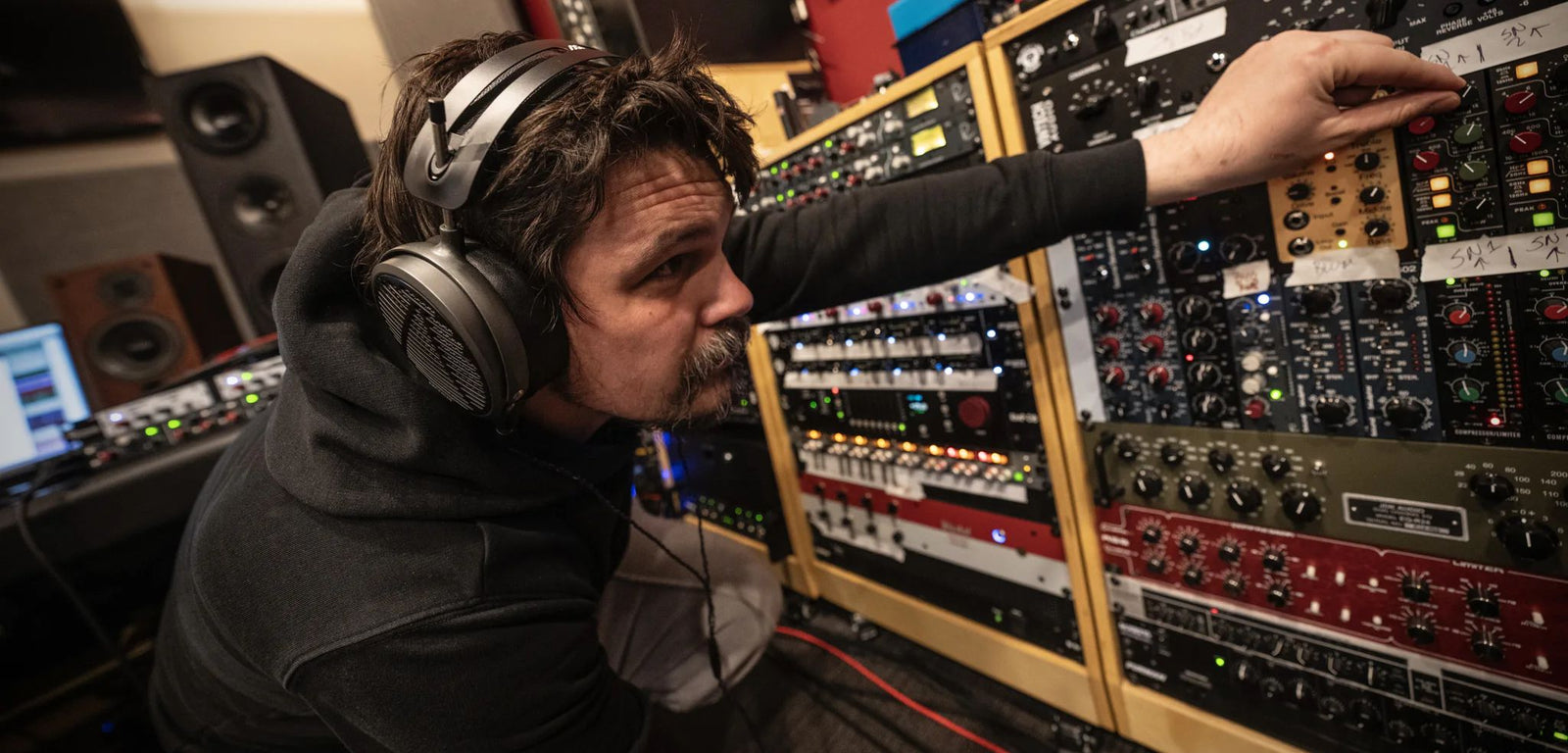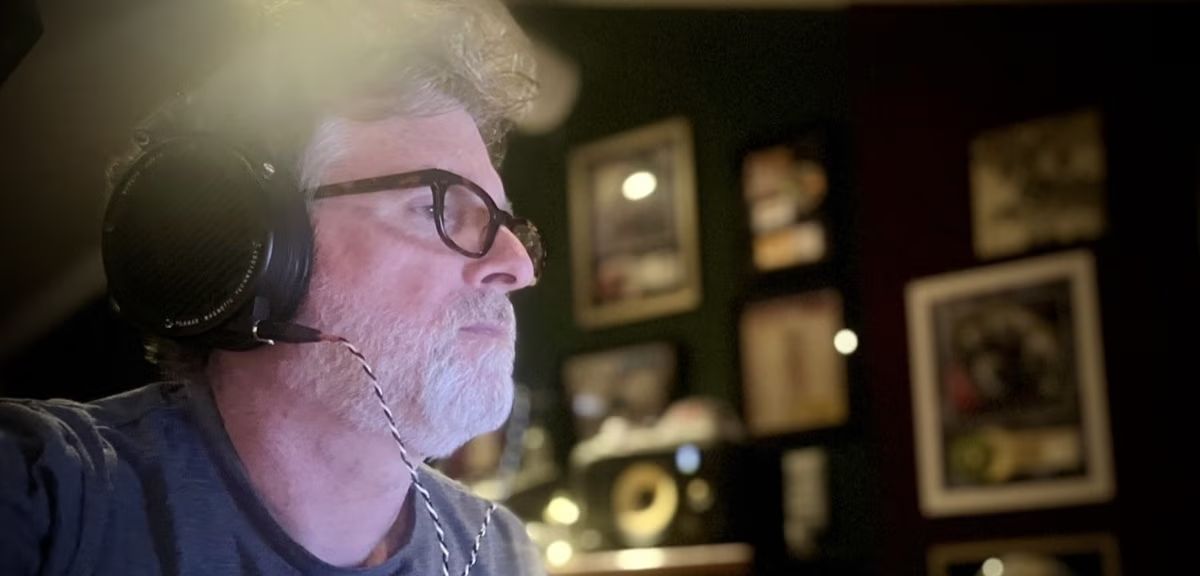
Alex Lifeson is a Canadian musician, best known as the guitarist of the Canadian rock band Rush.

Elliot Scheiner is an engineer and producer. He started working for Phil Ramone at his A&R studios which at that time was considered one of the best studios in the country.

James 'Jimmy T' Meslin is a Grammy winning recording, mix, and live sound engineer based out of Long Island, NY. He's probably best known for his work with prog-metal giants Dream Theater and their affiliated projects.

Dave Way has been mixing longer than he hasn’t. Platinum albums, No. 1 singles, 4 Grammys, 19 Billion streams with names like Michael Jackson, Fiona Apple, P!nk, Xtina Aguilera, Ringo Starr, Iron And Wine, Sheryl Crow, Marshmello, Fall Out Boy, Kesha, Macy Gray, TLC, Victoria Monet, Sons Of Anarchy, Tracy Chapman, Ben Folds, John Doe, MC5, Spice Girls, Weird Al, Paul McCartney, Bobby Brown, Mick Jagger and many, many more.
December 20, 2021
Gilad Hekselman is one of the world's most prominent jazz guitar players. He is originally from Israel, and has lived in NYC for the past 18 years. Winner of Downbeat's 2017 Rising Star Guitarist, Hekselman has released 9 records under his own name to date, with a 10th on the way (Far Star, May 2022, Edition Records). He's also been touring the world extensively with his band, and as a sideman with some of the finest musicians on the NY scene.

If you asked Gilad for an intro he’d say: Gilad is a human being who’s trying to be better at being a human being, and at playing the guitar. While working on that, he’s performing in great places all around the world, collaborating with amazing musicians, and releasing music which some people seem to really enjoy.
If I had to choose my one favorite record of mine, it’d be hard, but I’d probably say Homes. That’s the last album I did with my then 10 year old trio with Joe Martin and Marcus Gilmore. And there are also a couple of tracks with Jeff Ballard. I also think This Just In has a vibe, and also my last few: Ask For Chaos has some new directions, Trio Grande (colab band with Will Vinson & Antonio Sanchez) has a vibe… But I see all of them as just auditory pictures along the journey. They are all what they are, a captured moment in my musical life story. So I try to progress as a musician but not judge the past. In the same way that if you look at an old picture, you’d think “oh wow, that’s an interesting hair-do…” It was just a part of the process.
I am now working on a more produced record (like many musicians during the Covid era) and I am very excited to share those songs with the world. I wrote so much music during this time, and got really deep into mixing and production.
For many years I’ve spent a lot of my practice time trying to not sound like a guitar. I wanted to sound like a piano, like a voice, like a horn or like the drums. So I think a lot of my own music, as well as a lot of what people hire me to do, is to sound like a small orchestra in a way. But in recent years I am slowly falling back in love with the guitar, across genres, and I think some people just want me to be a guitar player in their band which I like doing too!
I don’t have any professional musicians in my immediate family but I grew up around a lot of appreciation for music, especially classical. I also had many kids in my neighborhood that were older than me and played rock guitar, and it was great to be around so many musicians who are better than me. I still try to do that as often as I can now, it’s such a good way to learn and get better faster. But my first moment that I knew I had to play music was when I saw Michael Jackson’s movie Moonwalker, sort of by chance. The feeling I got when I heard his music for the first time is something that I still conjure up when I am making my own. I want to make people feel a flavour of that same thing that made me fall in love with music, and get addicted to it.
Some of the best lessons I got were by people being super honest and critical with me. Doesn’t happen a ton but when it does and it’s someone you admire, it sticks. I try to do that with my students too, because I think that’s the more generous thing to do, in spite of the risk of hurting someone’s feelings. I took lessons with so many great teachers: Amos Hoffman, Yuval Cohen, Sanjay Sharma, Peter Bernstein, Ben Monder, Ari Hoenig, Sam Yahel, Dan Weiss, and a ton more.
Being an artist has been an extremely gratifying way to live this life, but also not always easy. There are ups and downs. Moments when you feel like you’re getting somewhere with the music, and validated by others, and moments of the exact opposite. I’ve had my fair share of those downs, some short and a few more significant. One was about 7 years ago or so, and I was actually considering not playing the guitar anymore. I still took gigs to make money but wanted nothing to do with it. I remember gigs that I just could not make one note out of the instrument that felt good and sincere enough. All I could play on the guitar then was a 1-4-5 blues on the acoustic at home, for a few mins at a time. Other than that if I didn’t have a gig, I wouldn’t touch it. That was for about a month or so and I started getting used to the idea that I can do other things in life. I think that getting familiar with, and embracing the notion that I am a valid, whole, worthy human being without the “musician” tag attached, was a very healthy step in the right direction. Letting go of that self-definition and its heaviness was essential for me to go forward at the time. I am still working on that!
Eventually, I slowly became curious about music again and soon enough I couldn’t put the guitar down. I think the weight of feeling like you’re only as valid as you are good (or not good) at something is a complex all musicians deal with, but it can be an unhealthy phenomenon that might actually hinder us from reaching our full artistic potential.
My main axe now is the Moffa semi-hollow that I’ve been using for the past 5 years. It does almost everything I need in most musical scenarios. I also love my pretty new Collings OM1 Traditional acoustic. Other than that I have a lot more other flavors here like a Moollon Tele that I love. In terms of pedals, I use a lot but pretty much on everything you hear me play in the past years, I am using an Earthquaker Devices Avalanche Run. Great delay reverb combo pedal in stereo. Amps, I love me a black Fender Twin Reverb pretty much in any situation. Recently I got a really fancy tube head by Pure Tone Amps from Greece which I love called Omikron. (An unfortunate name at this moment, but not their fault! Audeze)
For recording guitar, I usually like a combo on the amp of a ribbon (I have an M160 at home which I love) and a good condenser mic.
Be nice to other people, try to elevate people around you by being a better musician and a better human. Try to learn from anything, even if you think it’s bad - learn what you don’t like about it and avoid doing that. Be around musicians who are better than you and/or older than you. Listen to music, transcribe music, and study music to an obsessive degree. If that doesn’t come naturally, maybe reconsider whether this path is for you.
I use them daily for mixing, recording, teaching, and listening to music. I am not working in a treated room so to really hear my mix, I depend on headphones greatly.
I have been using the LCD-1 for a few months now and I can easily say that they have changed everything for me. I’ve been studying the art of mixing and production during the pandemic (on Far Star, releasing May 2022), and after getting these headphones all my mixes improved within days. They give you detail without harshness, and in combination with the Reveal plugin, they are a neutral source that I can trust. If something sounds good on them, it’d probably sound good on pretty much everything else. I also love recording with them because they are open and light-weight, and I always want to hear and feel the guitar from the room. Recording in a studio can be an unnatural thing for someone who’s more used to playing live, and these cans really give me a closer feeling to playing acoustically in a room.
